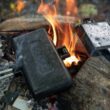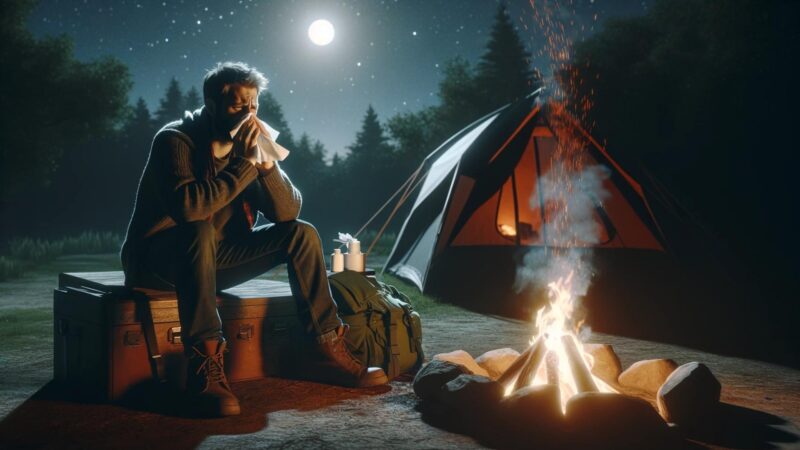Table of Contents Show
Have you ever gotten a stuffy nose after sitting around a campfire? If so, you’re not alone. It’s more common than you’d think.
However, just because you’re not alone doesn’t make it any easier. So, what’s the cause, and what can you do about it?
Today, we’re exposing what’s behind the situation so you and your nose can enjoy campfires again.
Let’s get going!
What Is a Stuffy Nose?
A stuffy nose occurs when an individual’s nasal passages become partially or fully blocked.
This is typically due to inflammation and swelling of the various tissues and blood vessels.
Every human has experienced a stuffy nose in their lifetime, but unfortunately, some more than others. This is typically due to inflammation and swelling of the various tissues and blood vessels.
While the most noticeable change is the inability to breathe through the nose, that’s not the only symptom. You may experience sneezing, a runny nose, or an inability to smell.
Luckily, the condition is typically temporary. However, it can take a few days to a week or more to go away.
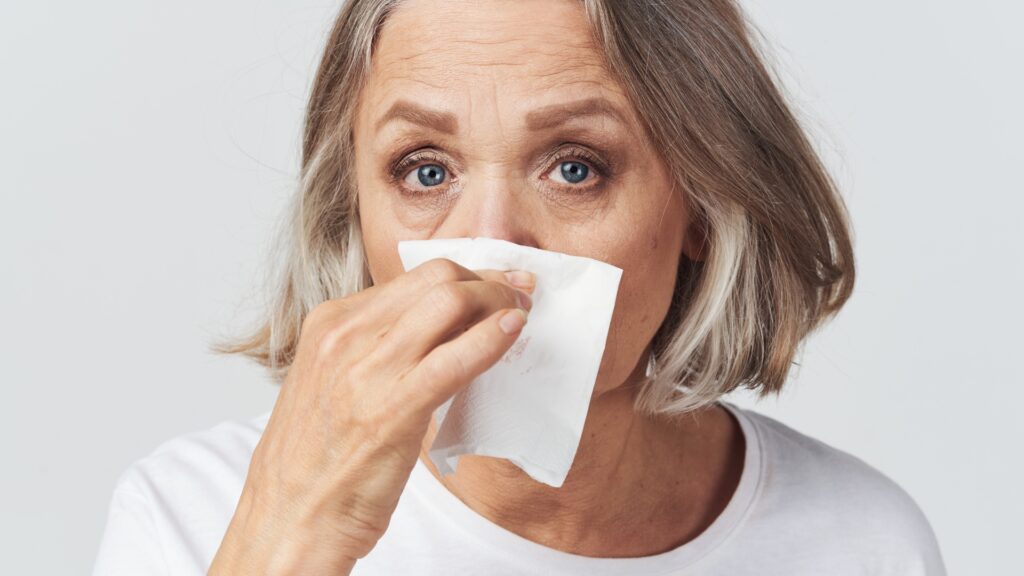
Can Campfire Smoke Give You a Stuffy Nose?
Campfire smoke can cause issues for those who are sensitive to smoke or have respiratory conditions. It can irritate the nasal cavity and cause the swelling and congestion many experience when sick.
Unfortunately, those with allergies and asthma are typically the ones most impacted. However, the severity of the situation can significantly depend on the individual and their proximity to the smoke.
If you find yourself with a stuffy nose when sitting around a campfire, make sure you keep your distance. In addition, be sure to sit upwind of the fire. Doing so can help keep smoke away from you and allow you to enjoy your time around the campfire.
Pro Tip: Do you feel like the campfire smoke follows you? It actually does! This Is Why Campfire Smoke Always Goes Towards You.
What Are the Side Effects of Smoke Inhalation From Campfires?
The side effects of smoke inhalation from campfires significantly depend on the extent of the exposure, what you’re burning, and the individual. Typically, the most common side effect is irritation of the respiratory system. This can lead to irritation of your eyes and throat or coughing spells.
Some individuals with extreme sensitivities could experience wheezing, shortness of breath, and tightness in their chest. These individuals should do all they can to avoid inhaling smoke.
Prolonged exposure to smoke can lead to serious health issues. Individuals can develop bronchitis, pneumonia, and carbon monoxide poisoning. Anyone who inhales a significant amount of smoke should seek medical attention immediately.
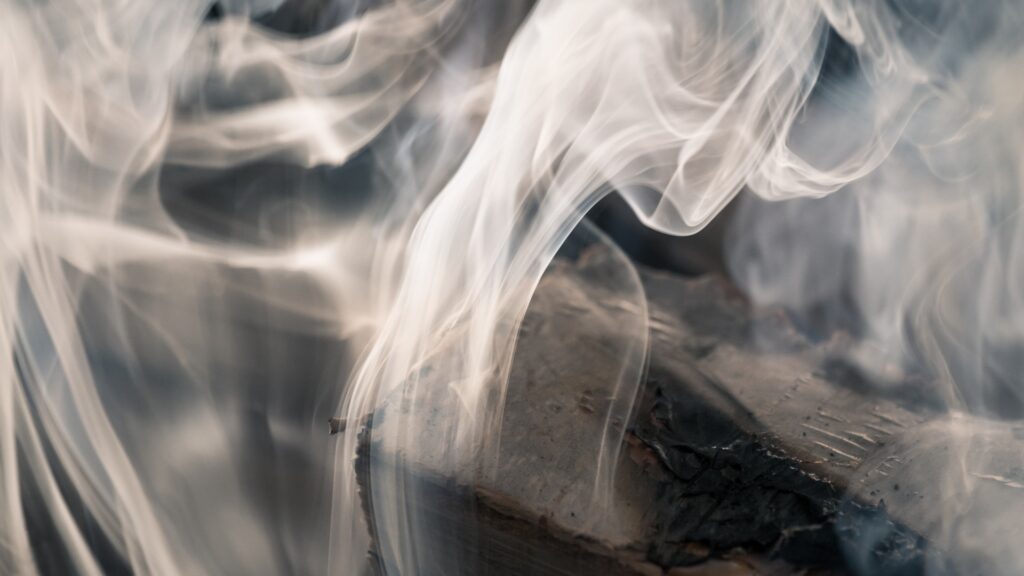
How to Treat a Stuffy Nose After a Campfire
If you start to experience a stuffy nose after a campfire, you’ll want to treat it as quickly as possible. Let’s look at several things you can do to get back to breathing like normal.
Stay Hydrated
Smoke inhalation leads to irritation and inflammation in the lungs and other respiratory passages. When this occurs, it can increase the chances of dehydration. To avoid this, drink plenty of water. This can help clear irritants from your body and soothe your throat and other passages.
When hydrating, you should avoid alcohol and caffeine. You may like these tastes, but they can accelerate dehydration. Consider warm beverages like herbal teas, broths, or plain old water.
Get Fresh Air
If you have a stuffy nose after a campfire, you first need fresh air. This can help dilute the irritants in your nasal passages. It may take some time, but you’ll notice them clearing, and breathing becomes easier.
Once you’re away from the fire, practice deep breathing exercises. Take some slow, deep breaths. Monitor to ensure that your condition is improving and not getting worse. If it worsens, you’ll need to consider taking further action.

Use Over-the-Counter Nasal Spray
Over-the-counter nasal sprays are a great solution if you need a quick fix. What’s even better, these are readily available. You can find them at just about any pharmacy or big-box retailer. A quick spray of these into your nostrils, and you’ll get some relief.
Follow the dosing instructions carefully. Using decongestant sprays too often can worsen your situation. However, saline nasal sprays are typically safe and can be used as often as necessary. Again, if your condition worsens, discontinue use and seek medical attention immediately.
Pro Tip: We avoid the smoke altogether and use this Portable Propane Fire Pit. We love it!
Steam Inhalation
Steam inhalation is another effective method to treat a stuffy nose after a campfire.
To do this, boil a pot of water, drape a towel over your head, and place your head over the steam. Keep a safe distance from the pot to avoid burns. Do this for about five to 10 minutes.
This process can loosen mucus and relieve congestion. If you want, add some essential oils like peppermint and eucalyptus into the water. It creates a therapeutic atmosphere and enhances the experience.

Warm Compress
A warm compress can help soothe a stuffy nose after a campfire. Grab a warm cloth or towel and soak it in hot water. Wring out the excess water and drape the fabric over your nose and forehead. This exercises the blood vessels and increases blood flow.
Unfortunately, this is only a temporary relief. You can use this method in combination with other treatments. If you don’t notice any changes or improvements, seek medical attention.
Elevate Your Head
Elevating your head helps promote sinus drainage. When you’re lying flat, the mucus can accumulate in your sinuses, causing pressure and congestion. By raising your head, gravity assists in draining the mucus, reducing congestion, and making breathing easier.
Elevating your head can also help reduce the swelling of the nasal passages. This is because elevation can decrease blood flow to the head, reducing inflammation in the nasal passages and further easing breathing difficulties.
Pro Tip: We hate that campfire smell gets into everything! Here are a few Easy Ways to Get Campfire Smell Out of Clothes.
Stay Rested
Rest is underappreciated when it comes to sicknesses. When sleeping, your body can devote as much attention as possible to fighting off irritants.
If you cannot sleep, take it easy until you fully recover. Clear your schedule as much as possible so you’re not too busy.
While resting, employ some of the other methods we’ve shared. This can help ensure you’re able to recover quickly.
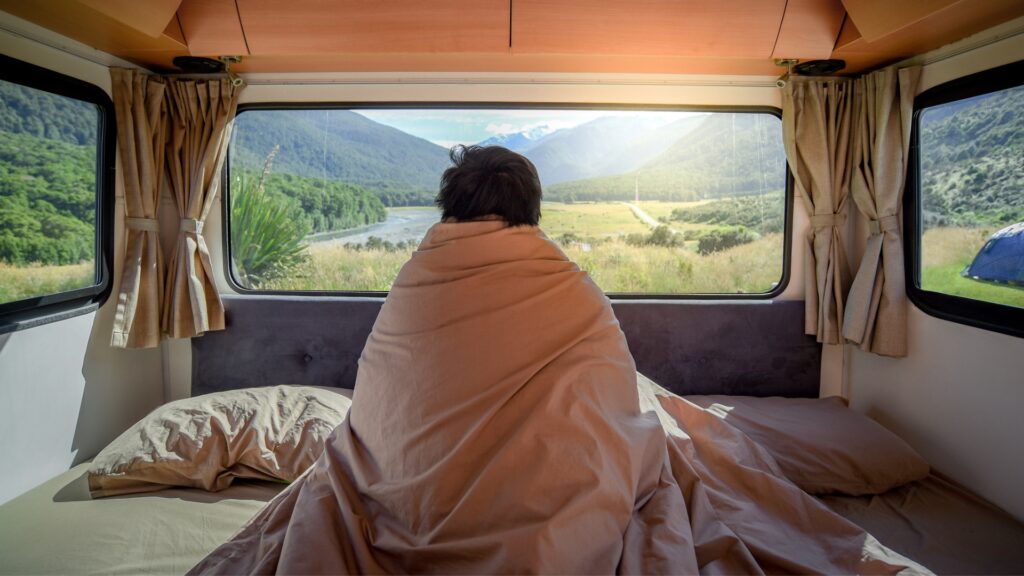
Avoid a Stuffy Nose After a Campfire
A stuffy nose is a typical experience for some people after a campfire. If you’re one of them, follow the steps we’ve shared and get better quickly.
This way, you can return to enjoying the great outdoors and spending time in the wilderness. Just make sure you keep your distance as much as possible from the fire so you don’t have another episode.



